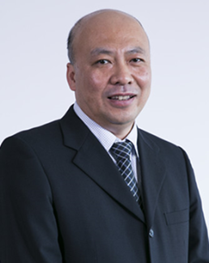Research Interest
Electrochemical energy storage materials and technology, including,
1. Sulfide solid electrolyte and all-solid-state lithium batteries;
2. Cathode materials of lithium ion batteries;
3. Lithium ion capacitors
Research Fields
Storage Materials and Technology
Representative Research
1. In view of the technical problems that hinder its commercial application, such as poor cycle performance and rate performance of lithium-rich manganese-based cathode materials, serious voltage degradation, and unmatched high-voltage electrolytes, the research team developed a new type of high-performance electrolyte, an innovative step. The method solves the technical bottleneck and application problems of lithium-rich manganese-based cathode materials. The modified lithium-rich manganese-based positive electrode exhibits better comprehensive electrochemical performance than the commercial LiFePO4 and NCM 811 positive electrodes, and meets the application requirements of high specific capacity lithium ion batteries. The strategy of the modification method is simple and easy to implement, and is more suitable for industrial production, which will greatly accelerate the commercial application of lithium-rich manganese-based cathode materials and realize the commercial application of lithium-rich manganese-based cathode materials.
2. Aiming at the technical problems of low energy density and power density of lithium ion capacitors and poor low-temperature performance, the research group developed rapid pre-insertion lithium technology, low-temperature adaptation electrolyte and electrodes by optimizing key materials such as positive and negative electrode materials, porous current collectors and diaphragms. The preparation process comprehensively improves the performance of the lithium ion capacitor. The lithium ion capacitors developed by the research group have a single energy density of 12 Wh kg-1 and a cycle life of more than 100,000 cycles at 100 C. They can be used in the fields of new generation hybrid power systems, port AGVs, and rail transit regenerative braking energy recovery.
3. In view of the current research status of low power density and short cycle life faced by all-solid-state batteries, the research group focused on inorganic sulfide electrolytes for research and development. At present, it can realize the kilogram-scale batch preparation of a variety of inorganic sulfide solid electrolyte systems, with a conductivity of 10-4-10-2 S cm-1, and stable material properties. Develop the preparation technology of inorganic sulfide electrolyte all-solid-state batteries. The developed all-solid-state lithium-ion battery has a capacity retention rate of 88.9% and a 10 C capacity retention rate of 63.5% at a rate of 0.5 C at room temperature for 2000 cycles.
Contact
wujf@qibebt.ac.cn





